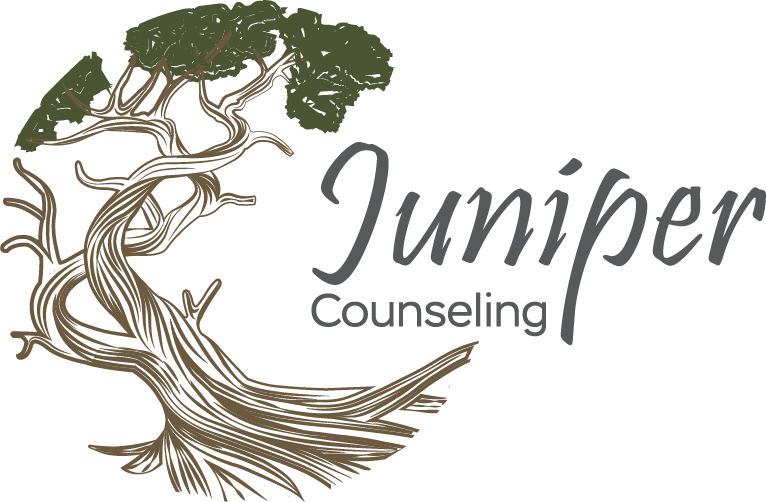Do You Think You Might Have Experienced Trauma?
Trauma can come in all shapes and sizes. You might suffer from flashbacks and nightmares and find yourself in a constant state of anxiety. Or maybe you feel numb and unable to experience joy, as if you’re not even present in your own life.
Oftentimes, trauma comes about if you suffered abuse, betrayal, or neglect. Perhaps you had a relationship where you just didn’t feel seen, heard, or appreciated, leading you to believe that you’re unlovable. Because of your past hurt, you may have trust issues and worry that you’ll get hurt again. All of these challenges can come from trauma, whether you realize it or not.

“The essence of trauma is that it is overwhelming, unbelievable, and unbearable. Each patient demands that we suspend our sense of what is normal and accept that we are dealing with a dual reality: the reality of a relatively secure and predictable present that lives side by side with a ruinous, ever-present past.”
– Bessel A. van der Kolk
Trauma Can Make You Feel Confused, Fearful, And Disconnected
Trauma can make you feel as if all the different parts of yourself are in conflict. One part may feel numb and disconnected while another part feels fearful and hypervigilant. One part of you may feel terrible about what happened to you and another may blame yourself.
Below is a more complete list of symptoms that often occur after a traumatic event:
- Emotional overwhelm
- Depression
- Anxiety and panic attacks
- Loss of interest
- Feeling unreal or outside of your own body
- Feelings of guilt, shame and worthlessness
- Nightmares and flashbacks
- Substance abuse and eating disorders
And this is not an exhaustive list—you might also experience hypervigilance, trust issues, chronic pain, memory troubles, and decreased concentration.
If you have one or more of these symptoms, a therapist with specialized trauma knowledge and interventions can help you find relief from your symptoms. By offering EMDR, IFS, and other research-driven forms of therapy, I am confident that I can help you process and resolve your trauma.
Many People Suffer From Trauma Without Even Knowing It
In the wake of a traumatic event, it’s normal to feel fearful and distrustful of other people. It’s also normal to internalize what happened and blame yourself, even if another person wronged you. Millions of trauma survivors feel the same way. Oftentimes, the shame of trauma exposure leads to secrecy. As a result, the trauma survivor is forced to carry their experience alone.
What’s more, lots of people don’t even realize they suffer from trauma. They don’t understand how widespread and far-reaching it is. Traumatic events don’t just include abuse or combat violence—they can also be very subtle.


The most common source of trauma occurs among children and their caregivers.
Developmental Attachment Trauma can occur if a child fears their caregiver, is abused or neglected by them, or has difficulty connecting to them emotionally. As a result, the child may come to feel that they’re inadequate or unworthy of love and acceptance. This feeling can follow them into adulthood.
If you think you may have childhood trauma—or even trauma from a more recent event—I encourage you to pursue therapy. Trauma is a complex disorder of the nervous system and requires specialized training to help you get to the bottom of it.
Therapy Is A Chance To Find Unconditional Acceptance And Profound Healing From Trauma
My goal as a counselor is to educate you on how trauma has impacted you and employ empirically-based interventions to liberate you from the chains of the past.
We can only change what we are aware of. By becoming aware of trauma’s impact on your life and its effect on your brain and body, transformation is possible.
Above all, my approach is warm, compassionate, and fully and unconditionally accepting. If you kept your pain a secret in the past, I want you to know that in a safe and trusting relationship you no longer need to carry the burden of that secret. Having a caring therapist gives you a chance to have someone bear witness to your pain.
What To Expect In Trauma Counseling Sessions
Therapy is about helping you build skills to effectively manage your emotions while also increasing your capacity to tolerate distress. With increased self awareness you will learn to more skillfully respond to your internal experiences while while working towards deeper healing of your traumatic memories.
Additionally, I want you to understand how trauma affects your brain functioning and your emotions. The fact that you feel unsafe or unworthy is normal—in fact, it’s expected in the wake of a traumatic experience. Knowing that this is normal can go a long way in helping you improve your self-compassion.


Tailoring Your Trauma Treatment Plan
I use empirically-based treatment approaches that draw from neuroscience to help you heal from trauma. One of the main approaches I draw from is called IFS, which stands for Internal Family Systems. IFS views the self as made up of many different parts that are often in conflict with each other. When trauma happens, there are wounded parts of ourselves that we try to push away because they are too painful to keep experiencing. The goal of IFS is to access these parts, help them heal, and integrate them back into our whole selves.
I also use EMDR (Eye Movement Desensitization & Reprocessing) therapy, which is about neutralizing the effect that traumatic memory has on you in the present. After a traumatic event, your brain is unable to process the experience in an adaptive way. The memory gets frozen or stuck, which is why it feels like it’s still happening long after it’s over. EMDR uses tapping, side-to-side eye movements, and other stimulation techniques to help you process traumatic memories so they don’t feel present anymore.
Based on my compassionate approach and empirically-based methods for treating trauma, I am confident that I can help you integrate painful memories so they lose their power over you. You suffered in the past from your trauma, but with the right support, you don’t have to go on suffering from the painful memories anymore.
You May Have Some Questions About Trauma and PTSD Therapy…
No one has been able to help me before. What makes your approach different?
You’re not alone. Many traumatized people have experienced one therapeutic failure after another. Trauma treatment requires specialized training and many therapists lack the specialization to do it effectively. This is part of what motivated me to become a trauma therapist. I am trained in EMDR, IFS, Attachment Trauma, Somatic Psychotherapy and many other empirically-based approaches.
Do I have to relive my traumatic past in order to heal?
Older theories taught therapists to have their clients talk through their trauma. The rationale was to have clients access and talk about the trauma so the therapist could help you manage your emotions attached to the traumatic experience. We now know that this does little more than retraumatize the client. With newer empirically-based interventions like IFS and EMDR, much of the work can be done internally—you do not need to share your story (but you can if you want to). What’s more, many of the approaches I use focus on symptom reduction in the present, so you don’t have to relive your traumatic experience.
How long will it take to feel relief?
For many of my clients, simply getting help is relieving in and of itself. And with EMDR, a lot of them feel relief after just a few sessions. Still, there is no magic timetable for how long the healing process takes. This is why it’s important to be patient with yourself and practice self-compassion. I encourage you to go at your own pace.
Let Me Help You Free Yourself From Your Traumatic Past
If you wish you had someone safe and trusting that you could share your trauma with, I would be honored to offer you my support.
To begin your healing journey, you can use the scheduling form or call 267-875-5409 to set up a free 15 to 30-minute phone consultation.
Related Articles
What is EMDR?
If you haven’t heard of EMDR, you aren’t alone. There are many approaches to treating mental health conditions, and EMDR is only one of many. Even if you have heard of it, you might [read more]
Finding Ways to Heal from Childhood Trauma
According to the CDC, at least 60% of American adults have experienced some form of trauma as a child. That’s a staggering statistic that could be impacting people in your life right now. It might even be impacting you.






